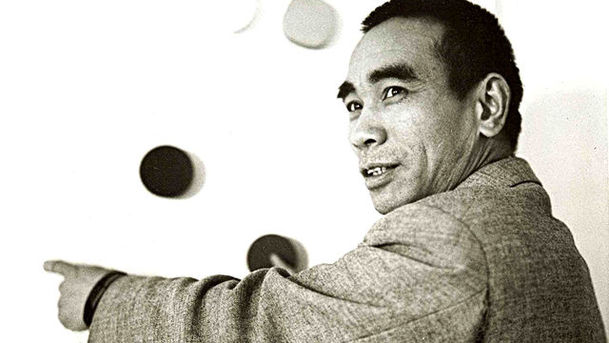Li Yuan-Chia

When Taiwan's first abstract artist settled in a Cumbrian farmhouse, his life changed. Deriving inspiration from landscape and local people, he encouraged new British artists and anticipated the success of contemporary Chinese visual art. Li Yuan Chia was one of the first significant Chinese abstract artists of the 20th century. This programme, presented by Sally Lai, the director of Manchester's Chinese Arts Centre, examines his career from the place he spent the last 28 years of his life: a stone farmhouse, built next to Hadrian's Wall in Cumbria. Born in China in 1929, Li was educated in Taiwan. He worked and exhibited in Italy before moving to London in 1963. Here, Li's reputation was established with monochrome paintings and scrolls marked with a tiny, isolated dot. But Li came to dislike the fashionable metropolitan art world of the mid-1960s. In 1968 he met Cumbrian painter Winifred Nicholson, who pursuaded Li to move away from the busy capital to a far more remote location, near her own home. With his own hands Li then set about converting a farm building, the Banks, at Brampton, where he built a gallery, library, theatre, printing press, children's art room and photographic darkroom, and opened it to the public. It became a popular attraction for local people, art afficianados and tourists walking Hadrian's Wall. Over the next ten years over 300 artists exhibited at the Banks, which was also the base from which Li's organisation, the LYC Foundation, was able to commission work by young British artists, some of whom became very successful later, including sculptors and land artists Andy Goldsworthy, David Nash and Bill Woodrow. Li's own work moved into abstract sculpture, using magnets, gold leaf, plastic discs suspended on plastic thread and additional text. The landscape also affected him, and he began to explore photography and environmental art. Always, he wrote poetry. But after Arts Council funding became increasingly limited, the LYC Foundation had to struggle to survive. Li continued to produce art, which became increasingly contemplative. He fell ill with cancer and died in 1994. Art historians now acknowledge Li Yuan Chia as having paved the way for the current expansion of Chinese contemporary art. But his former home in Cumbria is derelict.